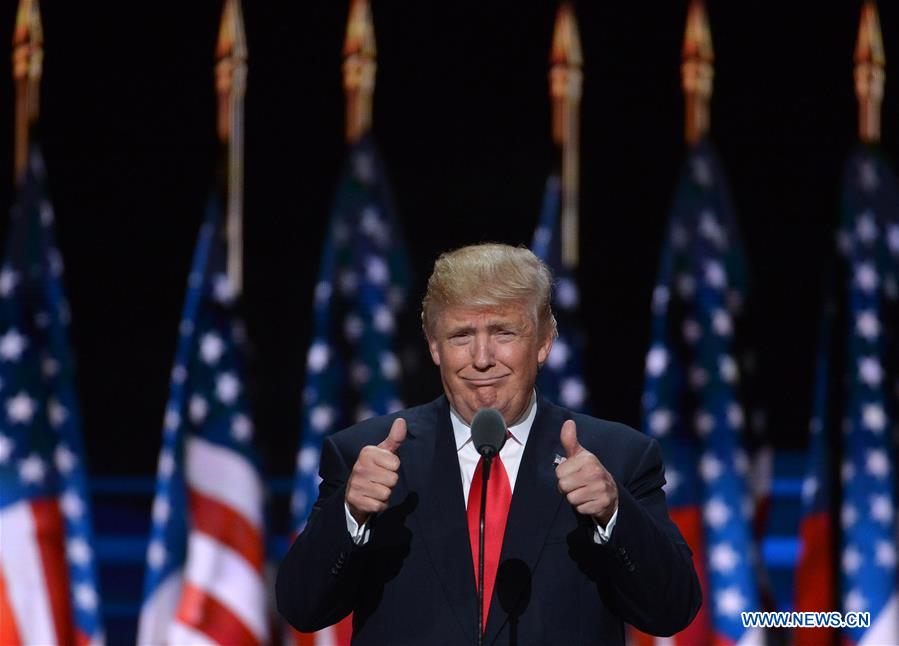WASHINGTON, Dec. 6 (Xinhua) -- President-elect Donald Trump is likely to shake up U.S. foreign policy on a number of fronts, and may take action on areas such as Russia, Cuba and the Korean Peninsula, according to experts.
Trump shocked the world last month when he pulled off a surprise victory against rival Hillary Clinton and clinched the White House, proving wrong the vast majority of polls and experts who predicted that Clinton would be the next president.
Now, the Trump team is scrambling to fill a number of cabinet positions, including that of the nation's top diplomat, the U.S. Secretary of State. Trump is expected to create a cabinet encompassing mostly hardliners, and experts said that will color U.S. foreign policy for the next four years.
Brookings Institution Senior Fellow Darrell West told Xinhua that Trump may seek to triangulate Russia against China. Trump was very critical of Chinese trade and military policy, and may try to use closer ties with Russia to pressure China on foreign policy, West said. Trump said he wants what he refers to as better trade deals, and also wants more U.S. companies to keep their operations within the United States, West said.
West added that Trump may also scale back the recent historic re-opening of ties with neighboring Cuba, only two years after U.S. President Barack Obama opened relations with its former enemy, which lies just off the coast of the U.S. State of Florida. While it remains unknown what steps Trump may take, experts said he is likely to reverse at least some of Obama's overtures to the island nation, although he may not entirely roll back relations to their former Cold War status.
Trump may also encourage China to pressure the Democratic People's Republic of Korea on its nuclear testing, West said, referring to the issue that has been a major East Asian issue in recent years.
Dan Mahaffee, an analyst with the Center for the Study of the Presidency and Congress, said the major world powers will face an interesting challenge in terms of areas where cooperation is needed, while also avoiding miscalculation in terms of potential conflict areas such as Eastern Europe or the maritime disputes in East Asia.
He noted that the worst historical example is that of World War I, where even as trade between nations boomed, nationalism and miscalculation allowed a small flashpoint to ignite a brutal, global conflict.
For the United States and Russia, much of the difficulty will surround how the U.S. relationship with the North Atlantic Treaty Organization (NATO) allies is managed, and whether there can continue to be a close coordination between the United States and European allies. That is especially the case given that the Trump Administration will likely demand greater NATO defense spending and investment, Mahaffee said.
The U.S.-China relationship will continue to be colored by the complex balance of issues where U.S.-China dialogue and cooperation is vital, such as global economic stability, global warming and counterterrorism. It will also be colored by areas where there will be difficulties, Mahaffee said.
As for the India-Pakistan confrontation, the issue is more fragile than many outside observers assume, and U.S.-China cooperation may be key to urging restraint from both sides, Mahaffee said.
As for Latin America, a possible violent collapse or internal instability in Venezuela may raise the possibility of significant disruptions to energy markets and the mass movement of displaced persons into neighboring countries, as well as into Mexico and the United States, he said.





